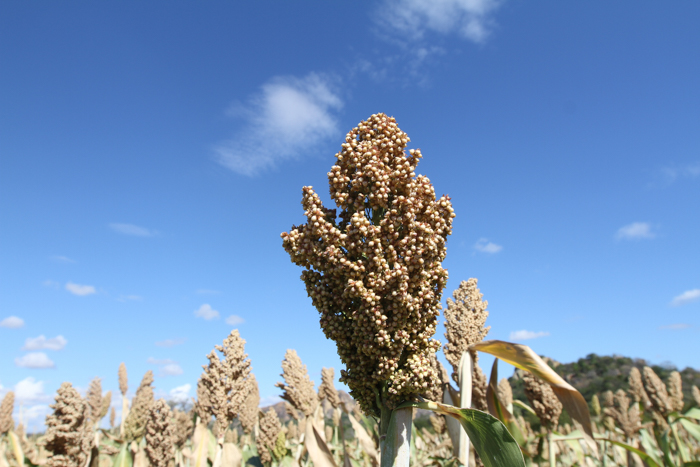
VILLAGERS in drought-prone Chirumanzu district, Midlands province, have switched to drought-resistant crops to shield themselves against hunger as rains have become erratic.
BY STEPHEN CHADENGA
Villagers told NewsDay on Friday that they had now ditched maize crop upon realisation that erratic rains were affecting their yields.
According to farming experts, Zimbabwe is among countries in southern Africa that need to embrace small grains to avert the impact of climate change-related disasters.
The country’s marginal areas of the country, particularly natural regions three, four and five, are characterised by high temperatures and erratic rainfall.
“The more prolonged dry spells had us revisiting the need to grow drought-resistant crops such as sorghum and wheat,” a villager, Innocent Dube, said.
Another villager, Felistus Chigumbu, said they had received the first heavy rains, last Thursday.
Chigumbu said the maize they planted with light rains that fell last year was a write-off as the crop had wilted.
- Chamisa under fire over US$120K donation
- Mavhunga puts DeMbare into Chibuku quarterfinals
- Pension funds bet on Cabora Bassa oilfields
- Councils defy govt fire tender directive
Keep Reading
“We planted the maize crop last December and most of it has wilted,” Chigumbu said.
“It is against such a background that we have now turned to drought-resistant crops in response to climate change and El Nino-induced dry spells.”
In 2016, farmers in the district had to let loose their cattle on the maize crop that had wilted as a result of the prolonged El Nino-induced dry spell that affected most parts of the country.
At that time the then local councillor Taruvinga Duvai, said the situation could have been worse if it was not for the Mavhaire irrigation scheme that serves the area.
Midlands Agritex provincial officer Medlinah Magwenzi was not available for comment, but at the beginning of the farming season last year, Gweru-based agronomist Celina Sakupwanya urged farmers in the province using dry farming methods to focus on early maturity drought-resistant crop varieties and small grains.
The Meteorological Services Department said the southern parts of the country would receive normal to below average rains during the 2018/2019 summer cropping season.











